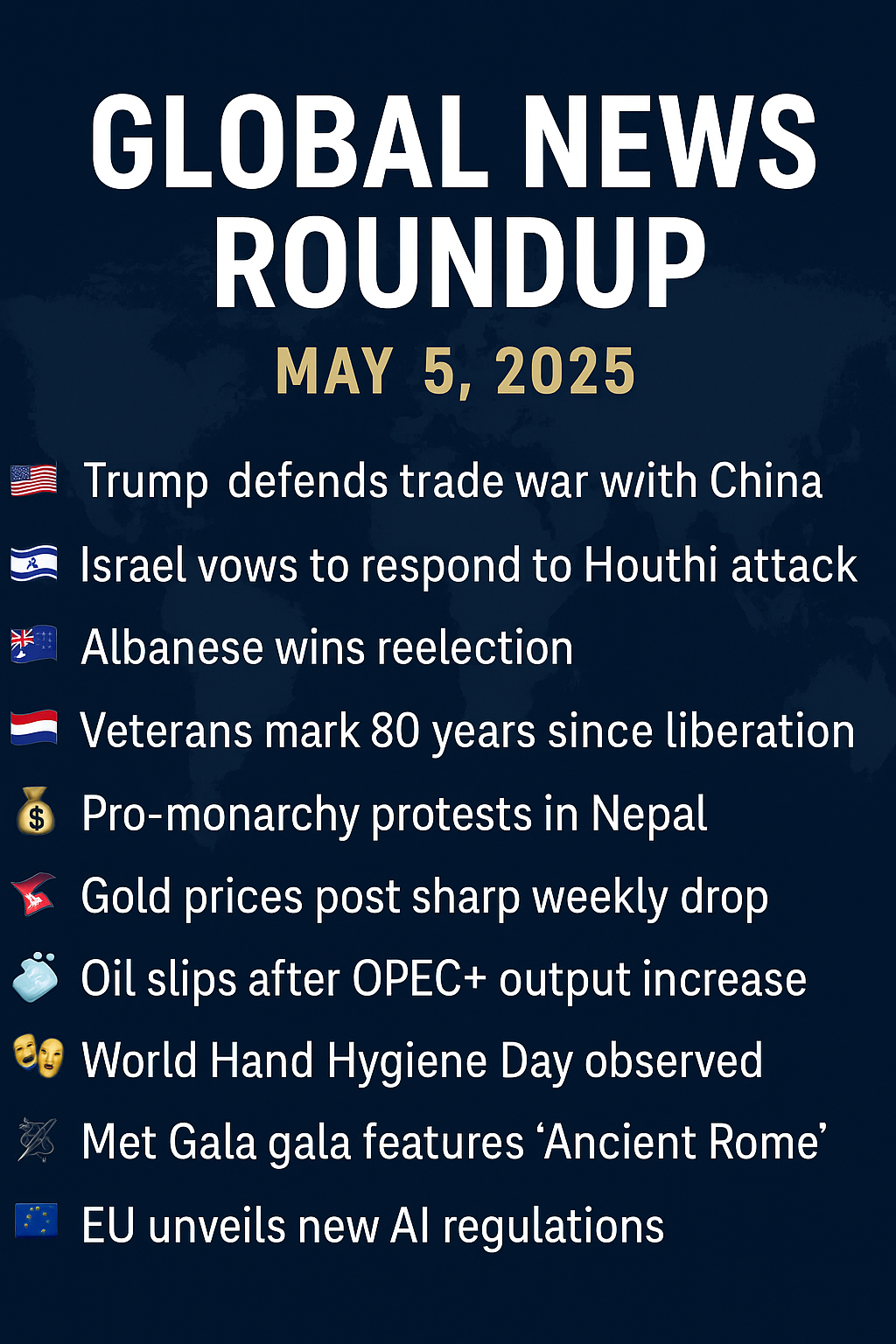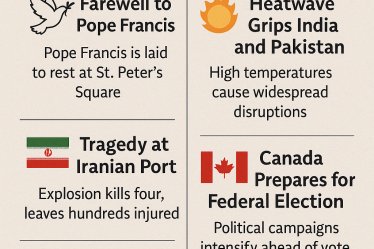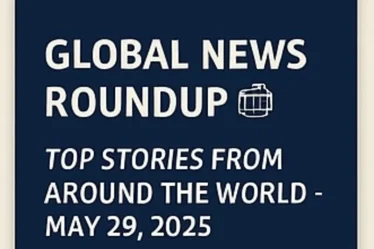
Welcome to your Monday news briefing. Here’s a full look at the major developments across the globe for May 5, 2025 — from political shifts and economic updates to cultural milestones and public health alerts.
U.S. Politics: Trade Tensions with China Heat Up Again
In an interview over the weekend, former President Donald Trump defended the ongoing trade war with China, describing it as a necessary step despite short-term hardships for American consumers. Trump emphasized that the U.S. must address what he calls unfair trade practices by Beijing. The comments come as tariff negotiations remain stalled and supply chains continue to experience disruptions, raising concerns in both political and business circles.
Middle East: Israel Responds to Houthi Aggression
Tensions in the Middle East continue to rise following a recent missile attack by Yemen’s Houthi rebels. Israel has pledged a “firm and proportional” response, warning of broader regional consequences if aggression continues. Military analysts suggest the situation could spark renewed instability in the already volatile region, particularly involving proxy forces backed by Iran.
Australia: Albanese Wins Reelection
In a closely watched election, Australian Prime Minister Anthony Albanese secured another term in office. His Labor Party successfully fended off a conservative coalition challenge, with voters showing support for Albanese’s climate policy and cost-of-living initiatives. The result solidifies the party’s control and suggests continuity in Australia’s domestic and foreign policy direction.
Netherlands: WWII Liberation Remembered
Commemorations were held across the Netherlands on Monday to mark 80 years since the country’s liberation from Nazi occupation during World War II. Dozens of aging veterans attended the events, alongside members of the royal family and international dignitaries. The ceremonies served as a solemn reminder of the enduring cost of freedom and the importance of global alliances.
Nepal: Calls for Monarchy Return Grow Louder
In Kathmandu and several other cities, pro-monarchy demonstrators returned to the streets this weekend, calling for the reinstatement of Nepal’s royal family. Though the monarchy was abolished in 2008, a growing number of citizens have expressed frustration with the current democratic system, citing political instability and corruption. Political analysts suggest the monarchy debate could become a major issue ahead of the next general election.
Economy: Market Uncertainty Continues
Global financial markets started the week on a cautious note. Gold prices suffered their steepest weekly drop in over two months, with investors pulling back amid shifting interest rate expectations. Meanwhile, oil prices slipped after OPEC+ announced plans to increase output again, triggering fresh concerns over potential oversupply.
In the U.S., mortgage and refinance rates remain stubbornly high. Analysts do not expect the Federal Reserve to lower rates in its next meeting, prolonging pressure on the housing market.
Health & Environment: WHO Pushes for Better Hygiene Practices
On World Hand Hygiene Day, the World Health Organization renewed its call for stricter hand hygiene protocols in healthcare settings. The agency highlighted a need for better compliance monitoring, education, and system-level accountability by 2026. The renewed push comes amid rising concern over antibiotic resistance and hospital-acquired infections.
Separately, new research has linked wildfire smoke to a significant increase in emergency room visits for asthma. With wildfires expected to worsen due to climate change, public health agencies are urging more proactive measures to protect vulnerable populations.
Culture & Tech: Milestones and Farewells
In entertainment news, punk rock band Green Day was honored with a star on the Hollywood Walk of Fame in celebration of 35 years in music. The band reflected on its legacy and the evolution of punk culture during the ceremony, drawing fans and fellow musicians to Los Angeles for the event.
On the tech front, May 5 marked the official shutdown of Skype. Once the dominant platform for video calling, Skype has seen its user base shift to newer services like Zoom, Teams, and WhatsApp. The end of Skype closes a significant chapter in digital communication history.



